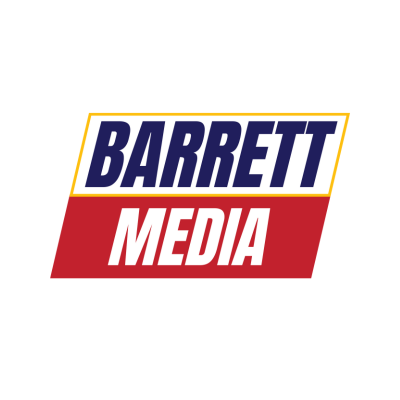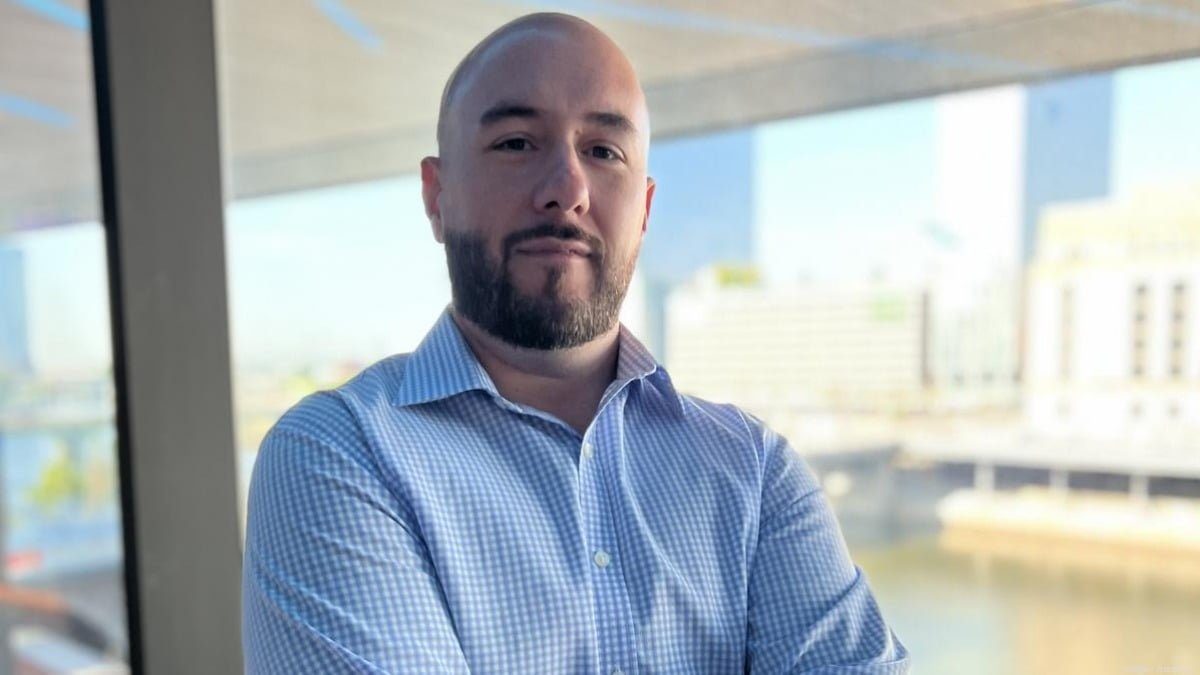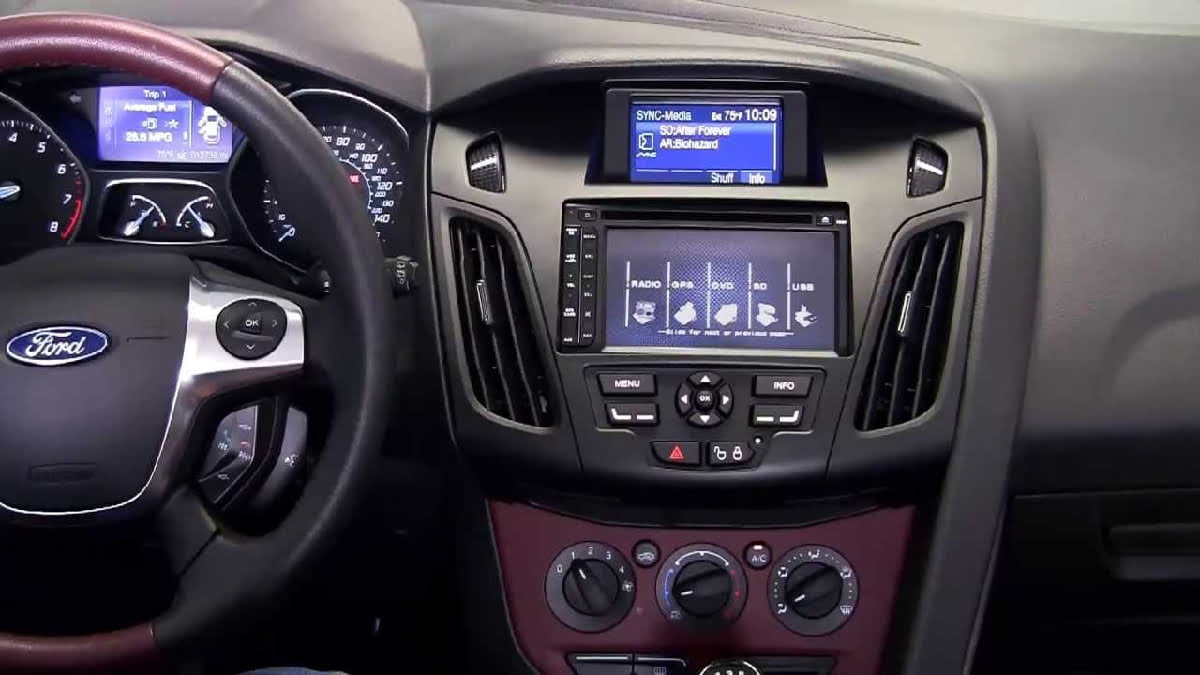During the pandemic, Nick Kayal, a former sports talk show host, fearlessly pivoted his career to news/talk. This bold move resulted in numerous changes, including his current role as the highly regarded host of 1210 WPHT’s Kayal and Company show in Philadelphia.
With his vibrant and impassioned approach to news/talk, he’s spearheading the evolution of radio to cater to the next generation’s needs.
1210 WPHT stands out for its dedication to connecting with audiences through a variety of platforms. Greg Stocker, the station’s brand manager and a popular personality on Kayal and Company, has led this effort. The station has become a favorite among listeners of all ages, thanks to its focus on live and local programming from 6:00 AM-7:00 PM. As a result, 1210 WPHT has established itself as a significant player in the Philadelphia radio market.
In a recent interview with Barrett News Media, Kayal shared essential perspectives on the advantages of AM radio and the powerful influence of talk radio on Philadelphia’s story. Kayal highlighted 1210 WPHT’s success in captivating audiences with exciting content and attracting diverse listeners.
Ryan Hedrick: Many listeners know you from your background in sports radio. What prompted your transition from sports to news/talk, and how has your experience been? Have there been any challenges or rewarding aspects in making this switch?
Nick Kayal: I was a political science major in college as a freshman back in 2002, so I’ve always had an interest in politics. Then, I got away from that and changed majors to criminal justice and pre-law. I started getting really into politics right around 2015 as [Donald] Trump announced that he was going to run for president, and a lot of my political views always seem to gradually slide from moderate Democrat, to moderate Republican or conservative Republican.
Many things during the pandemic opened my eyes, from the lack of freedom to the control of the government trying to restrict its citizens, and the imposed mask mandates. Equally important is the whole cancel culture movement. The woke aspect of society and people constantly being offended, trying to shut you down because they disagree. Much of that also drove me because I’m a big believer in the First Amendment and free speech, and I don’t believe in silencing opposing viewpoints.
RH: Did you encounter any difficulties or positive experiences when making this change?
NK: It has been gratifying because many great, talented individuals have surrounded me. The feedback has been mostly positive, and all of that has been rewarding. We hit the ground running from day one, and our audience has grown month-by-month against different demos and platforms.
The only challenge, initially, was once I got the job having to stay quiet about it for a few months and then make it public and expecting some pushback from a bunch of liberals that were going to be mad because I was doing so-called conservative talk. Other than a few people I have a good relationship with unfollowing me on Twitter because they didn’t want to see my political views, there haven’t been any challenges. I was put into a situation to succeed.
RH: WPHT has a long history in Philadelphia. What makes the station unique, and how do you strive to connect with the local audience?
NK: What makes WPHT unique right now is that this is the first time in the station’s history that we’ve been live and local 6:00 AM-7:00 PM. We have four different amazing shows. We don’t have four shows that all sound identical and are formatted the same. The hosts are not trying to be Rush Limbaugh or Sean Hannity.
In the morning, we do a modern-day news show for news talk. If you’ve ever watched (Fox News’) The Five, that’s what we do. We hit on the big stories; we have personalities; we talk about pop culture; it’s that kind of variety.
Dawn [Stensland] does her show; she’s also my news anchor and a TV legend in Philadelphia. She does more of what’s breaking and developing. Dom [Giordano] is on from noon-3:00 PM and really gets into the crime issues. Rich [Zeoli] does his thing in the afternoon almost like what he did in the morning, minus the supporting cast he once had, and of course, he’s a star in the industry.
As far as connecting with the locals in Philadelphia, it’s no secret. If you are a fraud, the audience will know it. I have a blueprint, and it’s called COPE. It stands for content, opinion, personality, and entertainment. If you check off those four each day, the results should come.
RH: As a morning host, what are the critical elements of a successful morning show? How do you keep the content engaging and relevant for your listeners?
NK: When you are doing mornings, you must be entertaining. How you define entertaining is up to each host. The last thing I want to do is do a 20-minute dissertation on the debt ceiling; my job is to wake my audience up, not to put them back to sleep. I don’t do anything long-winded.
In my opening segment, after we set the show-up and chit-chat, I do a piece at 6:10 called the “Big Take”. It’s five to seven minutes long, and that’s kind of my opening monologue. I used audio and video. After that, we hit on a couple of stories, and I get Dawn [Stensland] and Greg [Stocker] ‘s opinions on it, and whatever organically develops from that is how I keep the show moving.
We have a show sheet, but we are not beholden to it. It comes down to creating a game plan and letting your radio instincts take over.
RH: What role does talk radio play in shaping public opinion and fostering community dialogue?
NK: I’ve always been torn on shaping the narrative. I go into a show with my opinion each day. I try not to watch other people’s shows too much or listen to others because I don’t want those opinions to corrupt my views. Regarding shaping narratives, I’m not sitting there telling you what to think. You can agree or disagree.
Still, one thing I promised I would never do is to be an apologist for the Republican party or conservatives in general or MAGA Republicans. My job is not to improve your feelings but to get ratings, and I take the approach of getting ratings and eff the feelings.
RH: Can you share any memorable experiences or interviews you’ve had as a morning host? Is there a particular moment that stands out to you in your career?
NK: We have not gone heavy on interviews because we have a three-mic show between Dawn, me, and Greg. I can not give one specific interview.
Indeed, in sports, there were prominent people that I spoke with. When I was in the South, I talked to Nick Saban. Things may be different in 2023-24 if we may have somebody like [Ron] DeSantis on the show or [Donald] Trump, Tim Scott, or whoever that will be.
But so far, we have steered clear of interviews. To this date, the one thing that I am most proud of is the money we raised for the Travis Manion Foundation. Every year we do an annual radiothon, and this year we set a record in the mornings when we raised $92,000 in four hours.
RH: How do you see the future of talk radio and morning shows evolving in an era of rapidly changing media consumption habits? What strategies are you implementing to adapt to these changes?
NK: The way we view it, we are no longer a talk radio station. We are an audio and video content distribution platform or network of platforms. People listen to us when they want or when they have the time. They might be listening 45 minutes behind on a delay on the app or just catching up. They might go to the website and download the podcasts. Or they may go to YouTube and watch all four hours live on our channel.
We’ve had people tweeting us pictures of their smart TV’s where they’ve had YouTube up, and they’re watching us in their living room on their 65-inch flat screen, and it looks like we are doing a TV show. We are a variety platform now.
RH: What are some key advantages of AM radio over other mediums, and how can stations effectively communicate these advantages to listeners and advertisers?
NK: As crucial as ratings are, you will only last long with the advertisers and the revenue. It’s a matter of selling people on the value of AM and, indeed, to the automakers. AM radio is still how people get weather alerts, travel advisories, etc. There’s a human safety element. AM radio reaches over 40 million Americans weekly, well over 10 percent of the country. We still get a massive amount of people.
The biggest challenge is attracting the Gen-Z listener. I wonder if you can. That’s another audience we can tap into. There will always be that demand for talk radio because you know you can never replace live and local personalities. News/talk is expensive to operate when you’re live and local, but the value remains.
RH: Lastly, are there any exciting upcoming projects or initiatives you’re working on that you’d like to share with your listeners and readers?
NK: More than anything, our brand, WPHT, is where free speech lives. We encourage dialogue, discourse, and discussions, and, indeed, debate. We have some people in our audience who are not conservatives. We have people that disagree with us. The great thing about WPHT is that we offer well-rounded conversations and various shows.
We have some other things in the works that our Brand Manager, Greg Stocker, has been pushing for, and hopefully, in the weeks and months, we can get some of this rolled out. A lot of people say the station has never sounded better. Greg Stocker has only been in his position as Brand Manager for over a year, and he’s taken the station to new heights.
Within our doors and walls at Audacy in Philadelphia, there are very happy with how things are going at the station.










